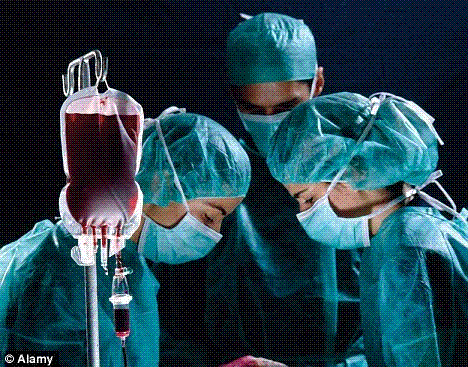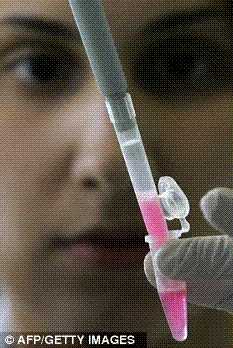Scientists use stem cells to make artificial blood, which will be tested in the UK within two years. The scientists who conducted the study (which can provide industrial-scale production) believe that this will change the status of blood transfusions, prevent the depletion of blood sources in hospitals, and save thousands of lives injured in battlefields and car accidents. Heart transplants, bypass surgery, and cancer patients can also benefit, which ensures that they have an adequate blood supply during the operation.

Blood made from stem cells will change the status quo of blood transfusion, avoid the shortage of medical blood supply, and save the lives of people injured in battlefields and car accidents

Scientists turn stem cells into red blood cells. Stem cells are omnipotent cells and are regarded as a repair kit for the human body
This is the "holy grail" of blood research. Artificial blood can avoid infectious diseases. It can provide blood for almost everyone with different blood types. Researchers at the University of Edinburgh and the University of Bristol provided many people with hope for life. For the first time, they used stem cells extracted from the bone marrow (which are universal cells and regarded as a repair kit for the human body) to cultivate billions of red blood cells. However, ordinary blood transfusions generally contain 2.5 trillion red blood cells, so the current number of cultures can not meet the needs of blood transfusion. The material extracted from the human embryos a few days before life is more likely to split into a large number of cells, but so far researchers have not successfully developed real blood.
If scientists eventually find a way to make real blood, in theory, only one embryo can provide all the cells needed for blood supply in the UK. Professor Marco Turn of the University of Edinburgh hopes to create a cell supply of O-negative blood. This "universal blood donor" can provide blood for up to 98% of the population. A safe blood supply will also benefit developing countries, where thousands of people die each year from postpartum hemorrhage. According to his predictions, he plans to inject a teaspoon of artificial blood into healthy volunteers within 2 to 3 years to conduct the first test of blood made from stem cells in the UK.
Large-scale trials will follow, but they will routinely apply this blood within 10 years. Within 20 years, they may be able to produce 2 million pints of artificial blood in a year, which is enough to meet the British blood supply. Any embryonic stem cells used must be extracted from the embryos that have just formed for 4 to 5 days. These embryos are the remnants of in vitro fertilization. They are donated to research projects voluntarily. Critics say it is wrong to use unborn children as "parts" to improve medical standards.
But Turner said: "There are a lot of rules and regulations to ensure that these cells are used for proper treatment, or for real scientific and medical purposes, rather than for bad or unimportant aspects." The Welkom Foundation provided funding. He said that Europeans have recently decided to ban patented treatment based on embryonic stem cells, which means that their attention will shift to other cell sources. Chris Mason, a professor of regenerative medicine at University College London, described the study as "a very tempting and safe supply that will make patients 'significantly different'."
Mason said that the product will meet the demand for supply and demand, so that the more frequent blood supply in the summer when car accidents and shooting accidents occur more often. Although some people worry that the use of other "body parts" produced by stem cells can cause cancer, blood cells should be able to avoid this risk. Blood donation services in the UK and Ireland are providing practical assistance and expertise for scientists. Lorna Williamson of the Blood and Transplantation Bureau of the National Health Insurance System said that the study has been encouraged, but "we will continue to rely on loyal and reliable regular blood donors to help us meet the needs of patients with life-critical blood.
Stern of the Scottish National Blood Transfusion Service is not the only one who wants to "capture" the multi-billion pound artificial blood market. The French have begun early human experiments with stem cell blood, and other scientists around the world are also making hemoglobin, a red blood cell protein used to transport oxygen to all parts of the body. Ideas being tested elsewhere include: using hemoglobin extracted from cows as a blood substitute. About 1.6 million British people donate blood every year. On holidays, the UK's blood reserves will decline, especially the universal blood type O blood, which is in great demand, is more susceptible to this.
Pre K Backpack,Preschool Backpack,Best Backpack For Kindergarten,Clear Bookbags Near Me
Ningbo Fineweather International Trade Co., Ltd. , https://www.fwsbag.com